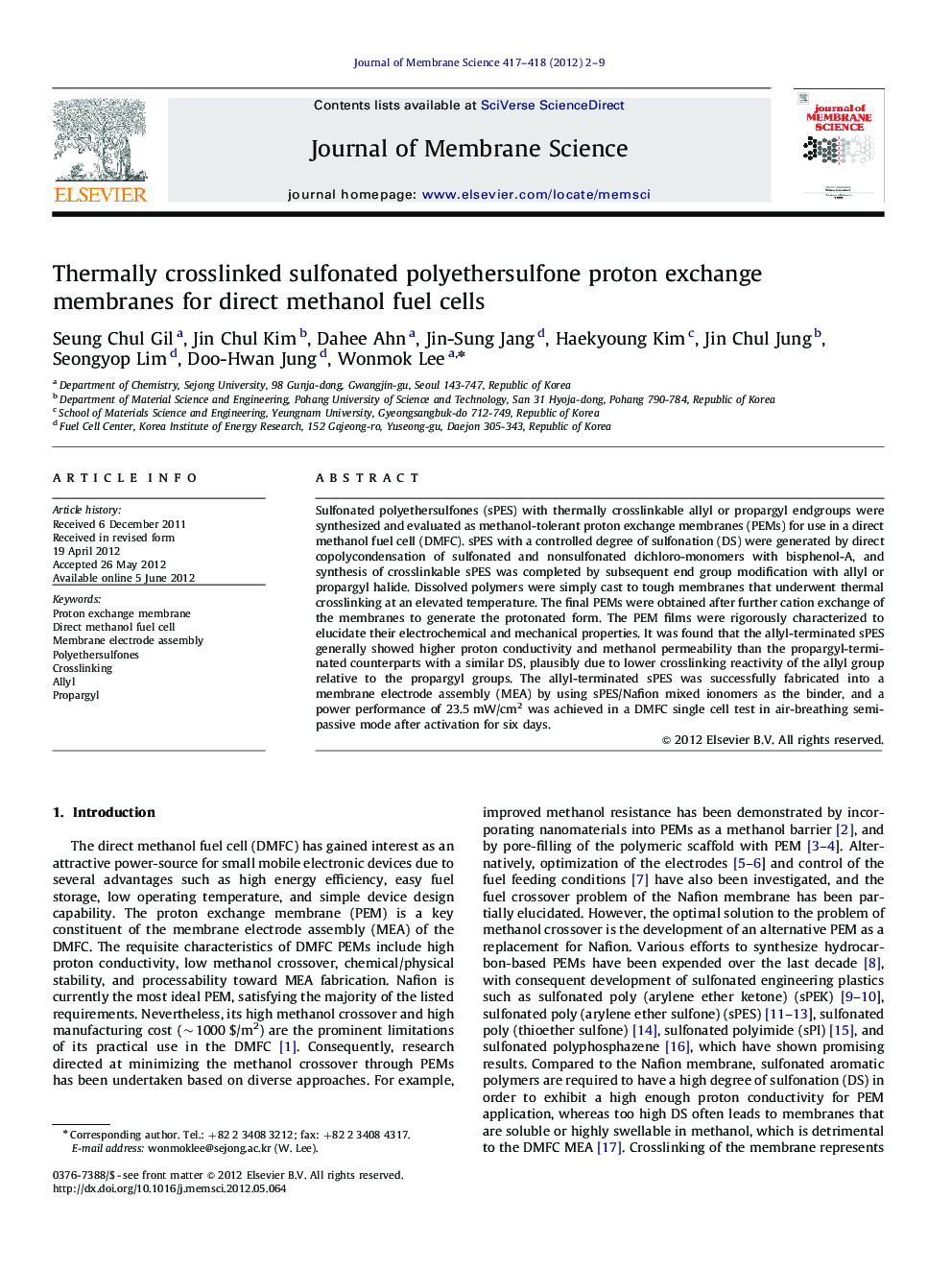| Article ID | Journal | Published Year | Pages | File Type |
|---|---|---|---|---|
| 634877 | Journal of Membrane Science | 2012 | 8 Pages |
Sulfonated polyethersulfones (sPES) with thermally crosslinkable allyl or propargyl endgroups were synthesized and evaluated as methanol-tolerant proton exchange membranes (PEMs) for use in a direct methanol fuel cell (DMFC). sPES with a controlled degree of sulfonation (DS) were generated by direct copolycondensation of sulfonated and nonsulfonated dichloro-monomers with bisphenol-A, and synthesis of crosslinkable sPES was completed by subsequent end group modification with allyl or propargyl halide. Dissolved polymers were simply cast to tough membranes that underwent thermal crosslinking at an elevated temperature. The final PEMs were obtained after further cation exchange of the membranes to generate the protonated form. The PEM films were rigorously characterized to elucidate their electrochemical and mechanical properties. It was found that the allyl-terminated sPES generally showed higher proton conductivity and methanol permeability than the propargyl-terminated counterparts with a similar DS, plausibly due to lower crosslinking reactivity of the allyl group relative to the propargyl groups. The allyl-terminated sPES was successfully fabricated into a membrane electrode assembly (MEA) by using sPES/Nafion mixed ionomers as the binder, and a power performance of 23.5 mW/cm2 was achieved in a DMFC single cell test in air-breathing semi-passive mode after activation for six days.
► We synthesize sulfonated-polyethersulfones end-functionalized by allyl or propargyl groups. ► End groups in the polymer products react to form crosslinked PEM films by thermal casting. ► Thermally crosslinked PEM films show excellent methanol permeability. ► Optimally sulfonated PEM film shows a promising power performance in DMFC.
